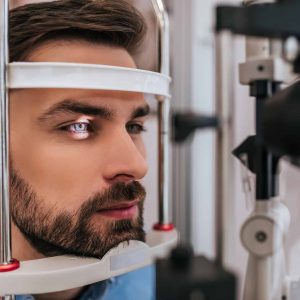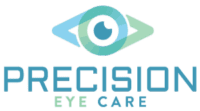Adult Exams
Most adults ages 19 to 40 enjoy healthy eyes and good vision. Their most common eye and vision problems are due to visual stress and eye injuries. Adults ages 41 to 60 start to have difficulty with their near vision and develop other ocular conditions that can begin to affect their quality of life.
Book Online
Just choose the appointment type and time that work best for you, and you're on your way to clear, comfortable vision!

Adult Exams
Great Comfort and Vision
Not Just An Eye Exam
A comprehensive eye exam is so much more than finding what prescription allows you to read the smallest line on the eye chart. Your eyes are also a window into your overall health. Did you know that an eye exam can detect the following:
- Anemia
- Sickle cell
- Rheumatoid arthritis
- Sjogren’s syndrome
- Cushing’s Syndrome
- Diabetes
- Hyperthyroidism
- High blood pressure
- High cholesterol
- HIV
- Lyme’s disease
- Tuberculosis
- Syphilis
- Multiple Sclerosis
- Myasthenia Gravis
That’s why it’s so important that you have a yearly eye exam even if you don’t think that your glasses prescription has changed.
What You Can Expect
When you come in for your comprehensive exam, you’ll be greeted by our friendly receptionist. Please bring your photo ID and both vision and medical insurance cards with you so that we can determine which plan will give you the best savings. (Yes, sometimes medical insurance provides better routine vision coverage than your vision insurance!) Please also bring all of your eyewear with you including:
| Every-day glasses | Prescription or over-the-counter readers | ||
| Sunglasses | Computer glasses | ||
| Hobby glasses | Safety Glasses |
Our clinical assistants will find out what prescription is in each pair of glasses so that we can determine which pairs will need to be updated.
Preliminary Testing with Our Clinical Assistants
After reviewing paperwork, one of our clinical assistants will escort you into our clinic, discuss your medical history and goal for the day’s visit, and perform preliminary test procedures on you to determine your acuity, screen your focusing ability, oculomotor control, peripheral vision, and eye-teaming ability, and take Optomap retinal image of your eye. And don’t worry, we don’t use the air puff machine – we have a better way of measuring your eye pressure.
Comprehensive Evaluation by our Doctors
Next, you’ll meet with either Dr. Lisa Januskey, O.D. or Dr. Raymond Tran, O.D. to elaborate on your visual needs, test your vision, evaluate how your eyes function, and examine the health of your eyes.
Vision Testing
Regular vision testing and evaluations ensure that you always have the clearest vision possible. Our optometrists provide regular vision acuity testing and refraction as part of a comprehensive eye exam to determine the prescription that gives you the most clear, comfortable vision. Depending on the results of your vision test, our doctors may prescribe corrective glasses, contacts, ortho-keratology, or refractive surgery.
Eye Functioning Testing
While clear, central vision is important, it is only 1 of 17 eye skills used in vision. Because these other skills directly impact our ability to read, learn, be productive, and our visual comfort, our eye examinations also evaluate eye functionality. This testing exceeds the State of Texas’s required elements of an eye exam, and are not routinely performed by all optometrists.
Our optometrists will review the eye functionality tests performed by the clinical assistants and may elect to perform additional tests to evaluate depth perception, eye muscle capabilities, peripheral vision, and visual effort exerted to keep the eyes focusing, moving, and working together properly. If our doctors find abnormal eye functionality, they may schedule you to return for a more comprehensive binocular vision or perceptual testing evaluation and may recommend that you start vision therapy.
Ocular Health Evaluation
As part of a comprehensive eye exam, our optometrists examine the overall health of the eye and eye lids using a giant microscope called a slit lamp. To examine the internal structures of the eye, we recommend that every patient receive an Optomap retinal evaluation each year. Many retinal conditions may not produce any symptoms until it’s too late. If something abnormal is seen during the Optomap evaluation, we may dilate the pupils.
Patient Education and Introduction to our Opticians
Next, your eye doctor will educate you on your refractive and medical eye conditions, discuss which lens options would best solve your visual problems, and answer any questions you may have.
Finally, your eye doctor will introduce you to one of our knowledgeable opticians who will help you find the right frame and lens combination to make you see clearly and look great. Not all frames are appropriate for all prescriptions, and our opticians will guide you to the best fit for you.



